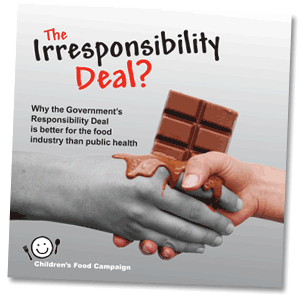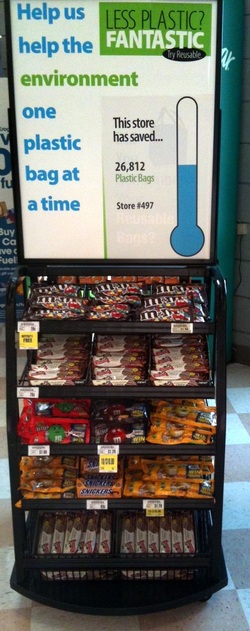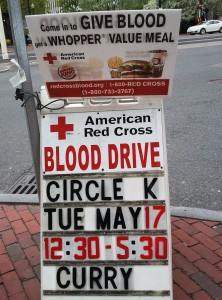My monthly (first Sunday) Food Matters column in the San Francisco Chronicle is about how you as an individual can influence food policy:
Q: I know you say “vote with your fork,” and I do, as often as possible, but it seems so small a gesture. In what other ways can we, as consumers, speak out or act to change our food system?
A: Vote with your fork and vote with your vote. Today’s food movement gives you plenty of opportunity to do both.
Voting with your fork means buying and eating according to what you believe is right, at least to the extent you can.
When you vote this way, you support farmers, processors, retailers and restaurant chefs who are working to create a food system that is healthier all around – for the public, farmworkers, farm animals and the planet.
You set an example. You help make it socially acceptable to care about food issues. You make it easier for others to shop at farmers’ markets, join CSAs, grow food at home, stop buying junk food and teach kids to cook.
Part of taking personal responsibility for food choices also means taking social responsibility. When you act, you make it easier for everyone else to do what you do. And yes, one person makes a difference.
My favorite current example is the work of an NYU graduate student, Daniel Bowman Simon, who researches – and advocates for – public policies to promote growing vegetables.
By chance, a food stamp (SNAP) recipient told him that she used the funds to buy plants and seeds to grow her own food. Could this be possible?
Simon found the 1973 food stamp legislation and read the fine print. There it was. He joined others and formed a group to publicize this benefit (see www.snapgardens.org).

Today, SNAP recipients throughout the country are encouraged to grow food – not bad for what one person can do.
I particularly like school food as a starter issue for advocacy. Improving school food is nothing less than grassroots democracy in action.
Schools matter because kids are in them all day long and they set a lifetime example. If you have children in school, take a look at what they are eating. Could the food use an upgrade? Start organizing.
All schools are supposed to have wellness policies. Find out what they are and talk to the principal, teachers and parents about how to improve access to healthier food and more physical activity.
Another well-kept secret: The U.S. Department of Agriculture offers technical assistance to help schools meet nutritional standards. The USDA encourages advocacy. It says its work is easier when parents push the schools to do better.
Many groups are devoted to school food issues. Some have published guides to getting started or developing strong wellness policies. They range in focus from hands-on local to national policy.
Other groups are gearing up to advocate for changes in one or another provision of the Farm Bill, now up for renewal in 2012. This legislation governs everything having to do with agricultural policy in the United States – farm subsidies, food assistance programs, conservation, water rights and organic production, among others.
In this era of budget cutting, every stakeholder in this legislation – and this also means everyone interested in creating a healthier food system – will be lobbying fiercely to defend existing benefits and to obtain a larger share of what’s available. Let legislators hear your voice.
And now is an excellent time to identify candidates for office who share your views and are willing to fight hard for them.
The ability for individuals, acting singly and together, to exercise democratic rights as citizens holds much hope for achieving a more equitable balance of power in matters pertaining to food and health.
Join the food movement. Use the system to work for what you think is right. Act alone or join others. You will make a difference.
Resources
The following are among the many groups advocating for healthier school food or farm policies [I submitted a much longer list but it got edited out. I will post the rest of it in the next day or two].
Center for Science in the Public Interest
Community Food Security Coalition
Environmental Working Group
Food and Water Watch
Institute for Agriculture and Trade Policy
National Sustainable Agriculture Coalition
E-mail Marion Nestle at food@sfchronicle.com.
E-mail questions to food@sfchronicle.com, with “Marion Nestle” in the subject line.
This article appeared on page H – 3 of the San Francisco Chronicle








